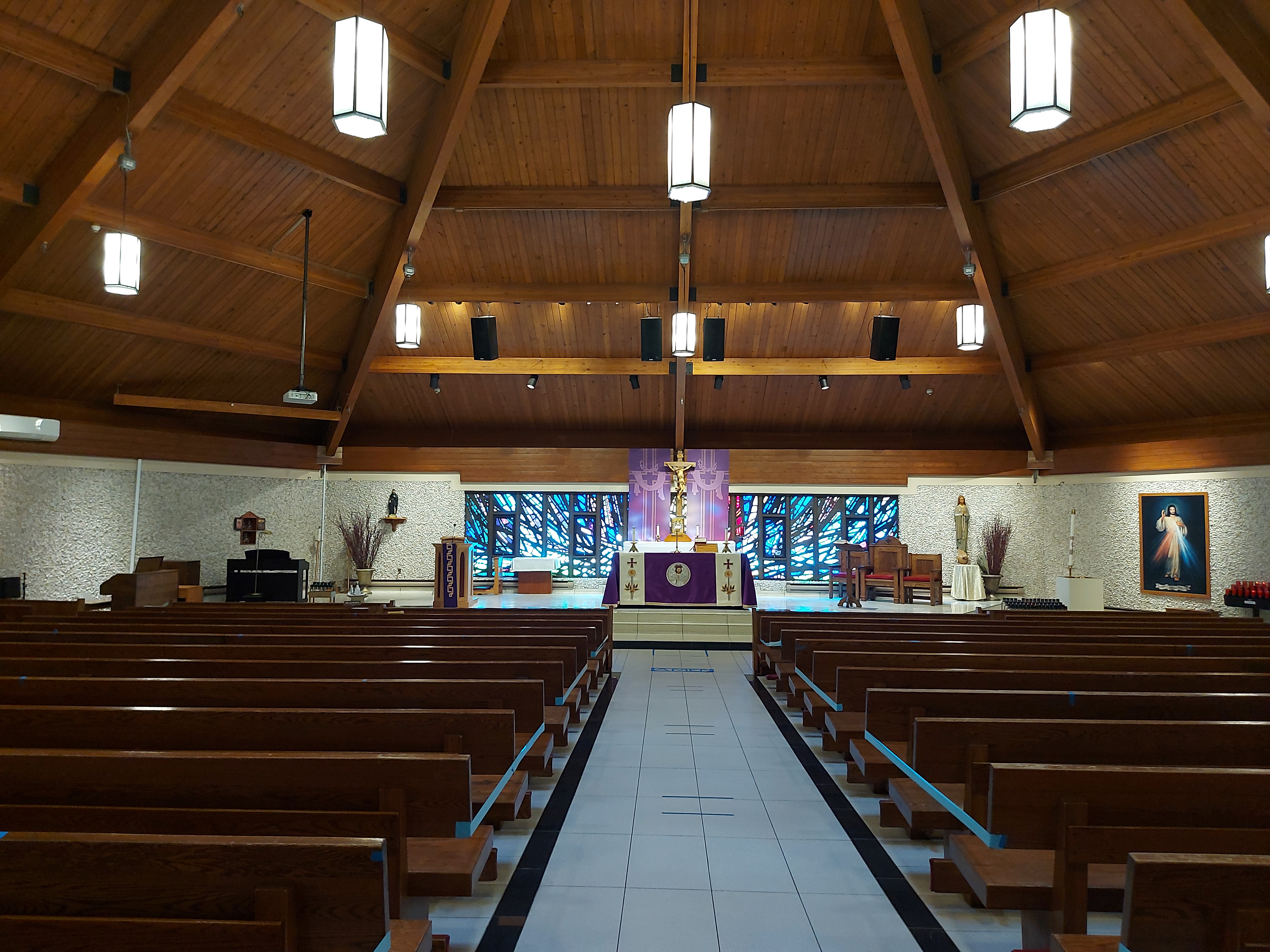- Home
- Our Community
- Our Faith
- Our Ministries
- Parish Life
- Bulletin
- Contact Us
- Search

After Years of Restoration, St. Michael’s Cathedral being Rededicated
Toronto landmark reopens September 29 with Vatican title as a minor basilica
After almost five years of extensive restoration, St. Michael’s Cathedral will open its doors once again on the feast of St. Michael, Thursday, September 29. To formally sanctify the historic church for continuing worship, 1,200 guests will gather for a special rededication Mass, celebrated by Cardinal Thomas Collins, Archbishop of Toronto.
“Over the past several years, the cathedral has undergone significant work to return it to its original beauty, to expand its seating capacity and to preserve it as a beacon of faith, hope and love for generations to come,” said Cardinal Collins. “To the parish family of St. Michael’s and all those who have contributed to the restoration efforts through their labour, prayers and financial support, be assured of my profound gratitude.”
The cathedral is the oldest building in the City of Toronto still utilized for its original purpose. It is a destination, not only for the faithful but also for tens of thousands of tourists who visit the historic site each year. Since June 2015, St. Michael’s has only opened its doors briefly over the Christmas and Easter seasons but has been otherwise closed for worship. Restoration efforts included conservation of the exterior façade and the 275-foot tower, reinforcement of the foundations, construction of a new balcony, the creation of a crypt chapel (still under construction) and new public washrooms (which didn’t previously exist).
Earlier this month, prior to its rededication, the Vatican’s Congregation for Divine Worship and the Discipline of the Sacraments granted St. Michael’s Cathedral the title of a minor basilica. As such, the mother church of the Archdiocese of Toronto will be known moving forward as St. Michael’s Cathedral Basilica, in recognition of its historic and current significance as a place of worship and sacred celebration in our archdiocese, our province, and our country.
